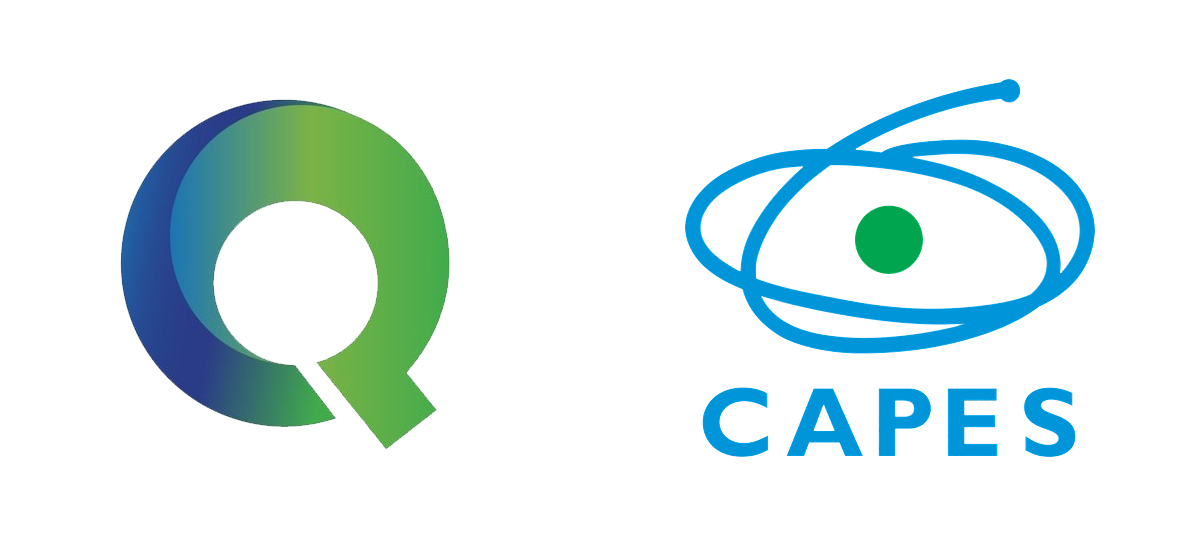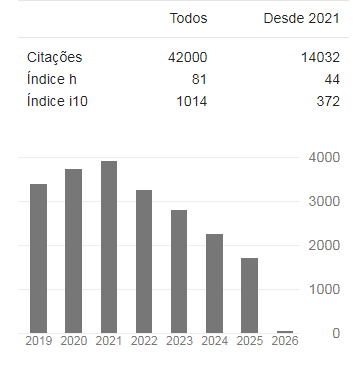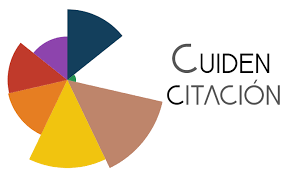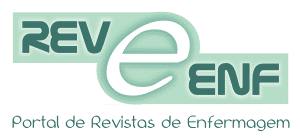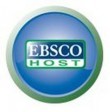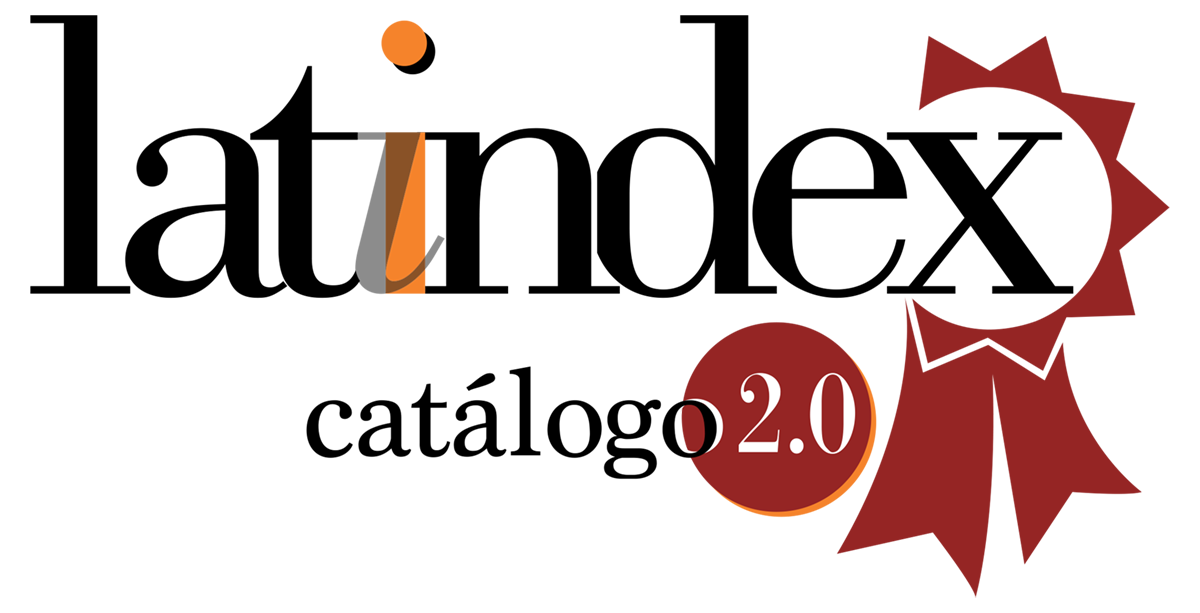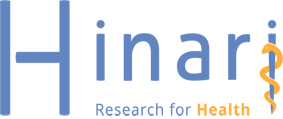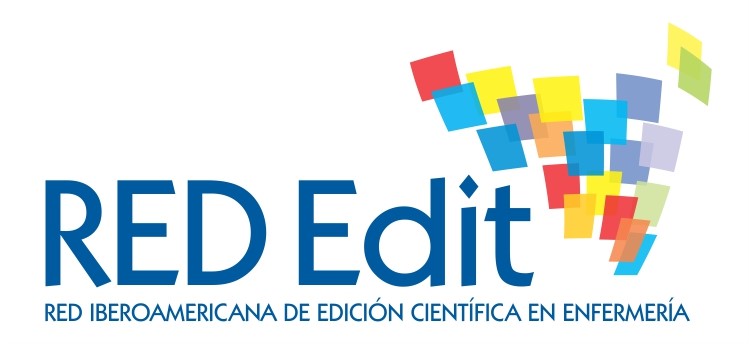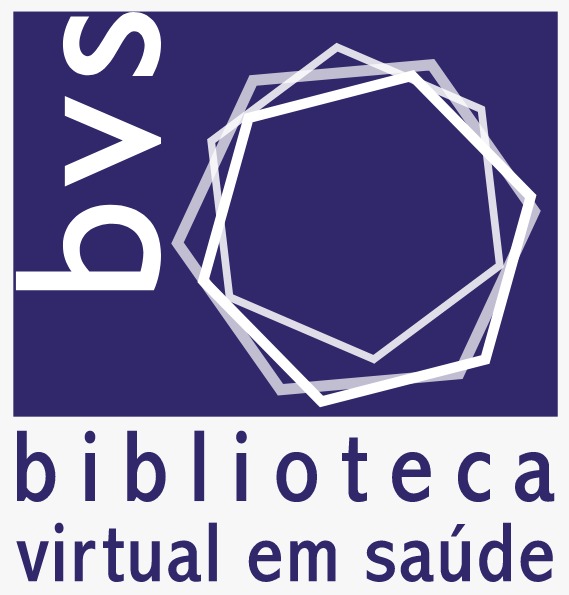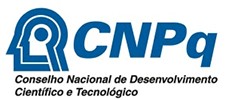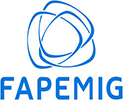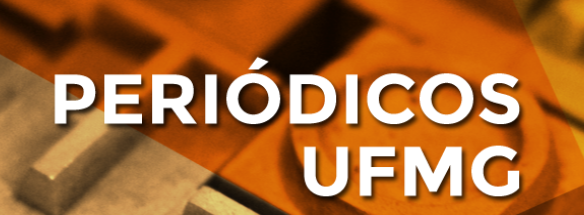Active teaching and learning strategies
perceptions of nursing students
DOI:
https://doi.org/10.5935/1415-2762.20180067Keywords:
Education, Nursing, Education, Higher, Obstetric Nursing, Pediatric Nursing, Students, NursingAbstract
In view of the need to change the traditional teaching and learning model, a group of professors of the subjects the subjects Child Health Care and Women’s
Health Care at a Public University decided to incorporate active teaching methodologies. This study aimed to understand the experience of students
after changes in the teaching method and the process of implementation of the new strategies. Data collection was carried out in June 2016 with a group
of students who studied the discipline. A questionnaire for the evaluation of the discipline composed of closed and open questions was applied with the
intention of making the students to elaborate a narration. Descriptive statistical analysis and content analysis were used to analyze the data. The main
results showed that in the general evaluation of the subject, the majority of the students attributed excellent and good concepts. The most cited aspects
were "teachers", "fields of practice" and "laboratory classes". In clinical practice, "autonomy", "case discussion" and "nursing consultation" were highlighted
as positive points. Among the negative points, the following were pointed out: "relationship with the nurses at the internships" and "reception of the team".
Based on the content analysis of the narrations, the following themes were found: "living the active methodology", "observing the association between
theory and practice", and "going beyond technique". In the process, the students highlighted experiences beyond technical learning, such as acquisition
of moral values, growth as human beings, importance of citizenship, respect and sensitivity in human relations, and incorporation of concepts such as
comprehensiveness, horizontality and autonomy.
Downloads
References
Taroco APRM, Tsuji H, Higa EFR. Currículo orientado por competência para a compreensão da integralidade. Rev Bras Educ Méd. 2017[citado em 2017 nov. 20];41(1):12-21. Disponível em: http://www.scielo.br/pdf/rbem/v41n1/1981-5271-rbem-41-1-0012.pdf
Lima VV, Feuerwerker LCM, Padilha RQ, Gomes R, Hortale VA. Ativadores de processos de mudança: uma proposta orientada à transformação das práticas educacionais e da formação de profissionais de saúde. Ciênc Saude Coletiva. 2015[citado em 2017 nov. 20];20(1):279-88. Disponível em: http://www.scielosp.org/scielo.php?script=sci_arttext&pid=S1413-81232015000100279&lng=en.
Lima VV. Espiral construtivista: uma metodologia ativa de ensinoaprendizagem. Interface (Botucatu). 2017[citado em 2017 dez. 10];21(61):421-34. Disponível em: http://www.scielo.br/scielo.php?script=sci_arttext&pid=S1414-32832017000200421&lng=en.
Freire P. Pedagogia da autonomia: saberes necessários à prática educativa. 36ª ed. São Paulo: Paz e Terra; 1996.
Paranhos VD, Mendes MMR. Currículo por competência e metodologia ativa: percepção de estudantes de enfermagem. Rev Latino-Am Enferm. 2010[citado em 2017 nov. 14];18(1):109-15. Disponível em: http://www.scielo.br/scielo.php?script=sci_arttext&pid=S0104-11692010000100017&lng=pt. doi: 10.1590/S0104- 116920100 00100017.
Freitas RAMM. Ensino por problemas: uma abordagem para o desenvolvimento do aluno. Educ Pesq. 2012[citado em 2017 dez. 12];38(2):403-18. Disponível em: http://www.scielo.br/scielo.php?script=sci_arttext&pid=S1517-97022012000200009.
Almeida MTC, Batista NA. Ser docente em métodos ativos de ensinoaprendizagem na formação do médico. Rev Bras Educ Med. 2011[citado em 2017 out. 28];35(4):468-76. Disponível em: http://www.scielo.br/pdf/rbem/v35n4/a05v35n4.pdf
Luna WF, Bernardes JS. Tutoria como estratégia para aprendizagem significativa do estudante de medicina. Rev Bras Educ Med. 2016[citado em 2017out. 14];40(3):653-62. Disponível em: http://www.scielo.br/scielo.php?pid=S0100-55022016000400653&script=sci_abstract&tlng=pt.
Gomes MPCG, Ribeiro VMB, Monteiro DM, Leher EMT, Louzada RCR. O uso de metodologias ativas no ensino de graduação nas ciências sociais e da saúde: avaliação dos estudantes. Ciênc Educ. 2010[citado em 2017 out. 10];16(1):181-98. Disponível em: http://www.scielo.br/scielo.php?script=sci_arttext&pid=S1516-73132010000100011.
Bogdan RC, Biklen SK. Investigação qualitativa em educação. 12ª ed. Portugal: Porto Editora; 2013.
Bardin L. Análise do conteúdo. São Paulo: Edições 70; 2011.
Minayo MCS. O desafio do conhecimento: pesquisa qualitativa em Saúde. 14ª ed. São Paulo: Hucitec; 2015.
Silva AH, Fossá MIT. Análise de conteúdo: exemplo de aplicação da técnica para análise de dados qualitativos. Rev Eletrônica Qualit@s. 2015[citado em 2018 jun. 10];17(1):1-14. Disponível em: http://oficinas.incubadora.ufsc.br/index.php/Lucasfranco/article/view/2336/2155.
Ferraz Júnior AML, Miranda NR, Assunção R, Silva SA, Oliveira FAM, Oliveira RG. Percepção de estudantes de Odontologia sobre metodologias ativas no processo de ensino-aprendizagem. Rev ABENO. 2016[citado em 2017 dez. 03];16(3):666-77. Disponível em: https://revabeno.emnuvens.com.br/revabeno/article/view/272/248.
Prado ML, Velho MB, Espíndola DS, Sobrinho SH, Backes VMS. Arco de Charles Maguerez: refletindo estratégias de metodologia ativa na formação de profissionais de saúde. Esc Anna Nery Rev. 2012[citado em 2017 dez. 09];16(1):172-7. Disponível em: http://www.scielo.br/scielo.php?script=sci_arttext&pid=S1414-814520120001 00023&lng=en. http://dx.doi.org/10.1590/S1414-81452012000100023.
Mitre SM, Siqueira-Batista R, Girardi-de-Mendonça JM, Morais-Pinto NM, Meirelles CAB, Pinto-Porto C, et al. Metodologias ativas de ensinoaprendizagem na formação profissional em saúde: debates atuais. Ciênc Saúde Coletiva. 2008[citado em 2017 out. 31];13(Supl.2):2133- 44. Disponível em: http://www.scielosp.org/scielo.php?script=sci_arttext&pid=S1413-81232008000900018&lng=en.
Bento LMA, Andrade LP, Sales A, Souza AP, Souza AFP, Batiston GT, et al. Percepção dos alunos de medicina quanto a aprendizagem x ansiedade na metodologia ativa. Rev Ensino Educ Cienc Human. 2017[citado em 2018 jun. 03];18(2):178-82. Disponível em: http://pgsskroton.com.br/seer/index.php/ensino/article/view/4612/3586
Silva RHA, Miguel SS, Teixeira LS. Problematização como método ativo de ensino-aprendizagem: estudantes de farmácia em cenários de prática. Trab Educ Saúde. 2011[citado em 2018 jun. 02]9(1):77-93. Disponível em: http://www.scielo.br/pdf/tes/v9n1/v9n1a06.pdf.
Valença CN, Germano RM, Malveira FAS, Azevêdo LMN, Oliveira AG. Articulação teoria/prática na formação em saúde e a realidade do Sistema Único de Saúde. Rev Enferm UERJ. 2014[citado em 2017 out. 04];22(6). Disponível em: http://www.facenf.uerj.br/v22n6/v22n6a17.pdf
Campos LR, Ribeiro MR, Depes VB.Autonomia do graduando em enfermagem na (re)construção do conhecimento mediado pela aprendizagem baseada em problemas. Rev Bras Enferm. 2014[citado em 2017 dez. 29];67(5):818-24. Disponível em: http://www.scielo.br/scielo.php?script=sci_arttext&pid=S0034-71672014000500818&lng=en.
Mulato SC. Enfermagem tradicional, atual e do futuro: a visão de docentes de enfermagem. Rev Enferm UERJ. 2010[citado em 2017 nov. 05];18:572-7. Disponível em: http://www.facenf.uerj.br/v18n4/v18n4a12.pdf
Christofoletti G, Fernandes JM, Martins AS, Oliveira Junior SA, Carregaro RL, Toleto AM. Grau de satisfação discente frente à utilização de métodos ativos de aprendizagem em uma disciplina de Ética em saúde. Rev Eletrônica Educ. 2014[citado em 2017 nov. 05];8(2):188-97. Disponível em: http://www.reveduc.ufscar.br/index.php/reveduc/article/viewFile/823/334.
Published
Issue
Section
License
Copyright (c) 2018 Reme: Revista Mineira de Enfermagem

This work is licensed under a Creative Commons Attribution 4.0 International License.


